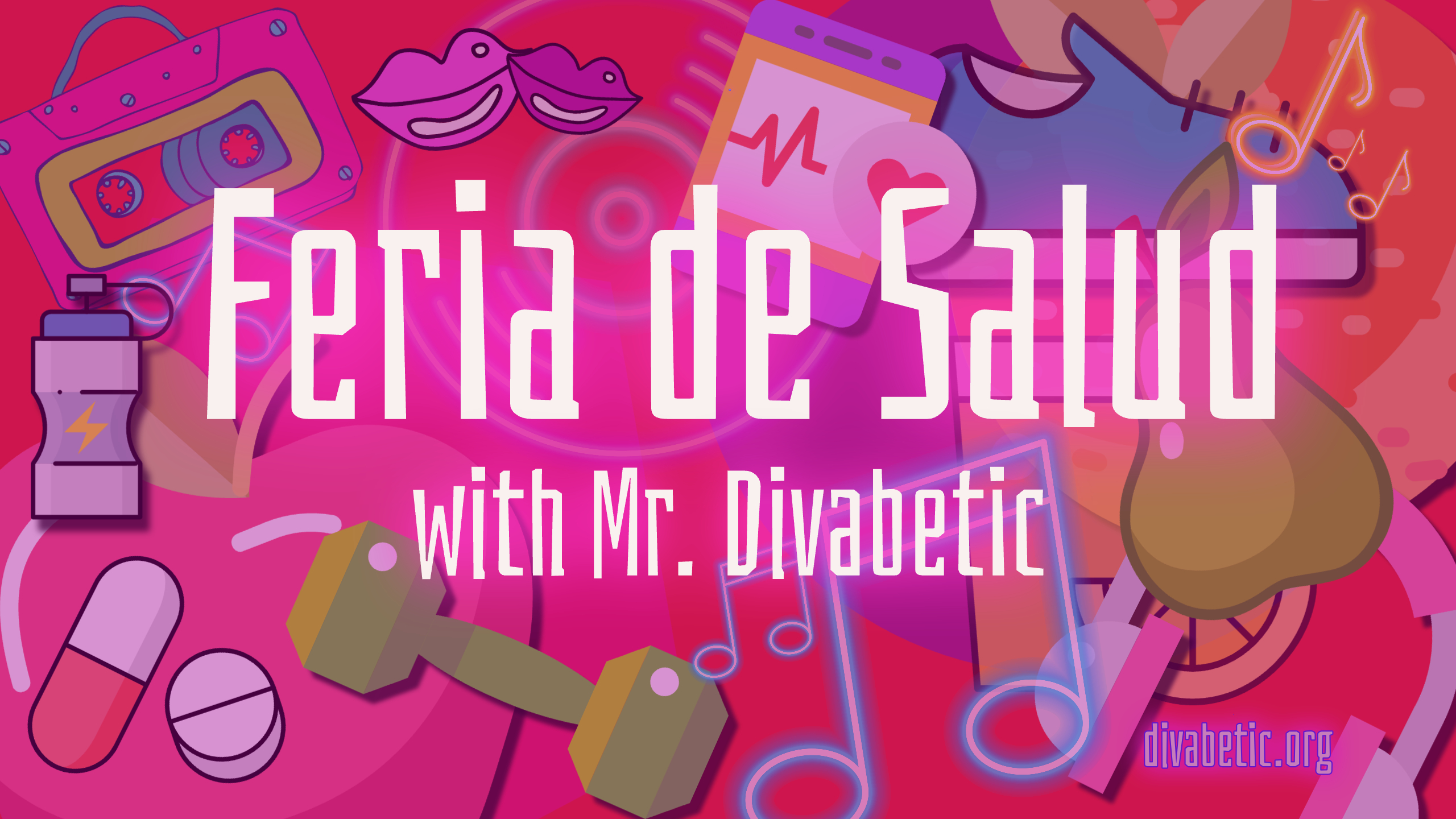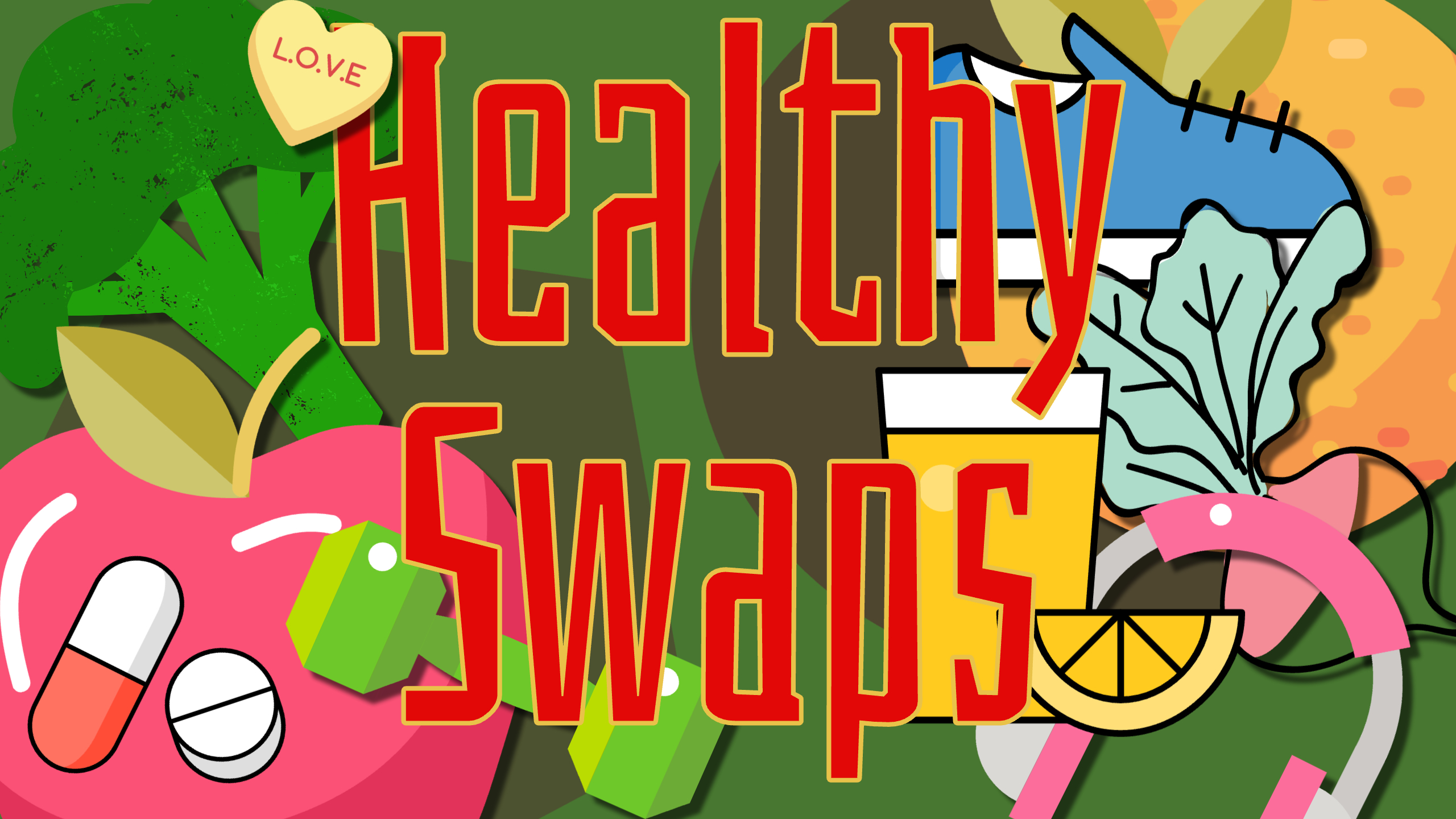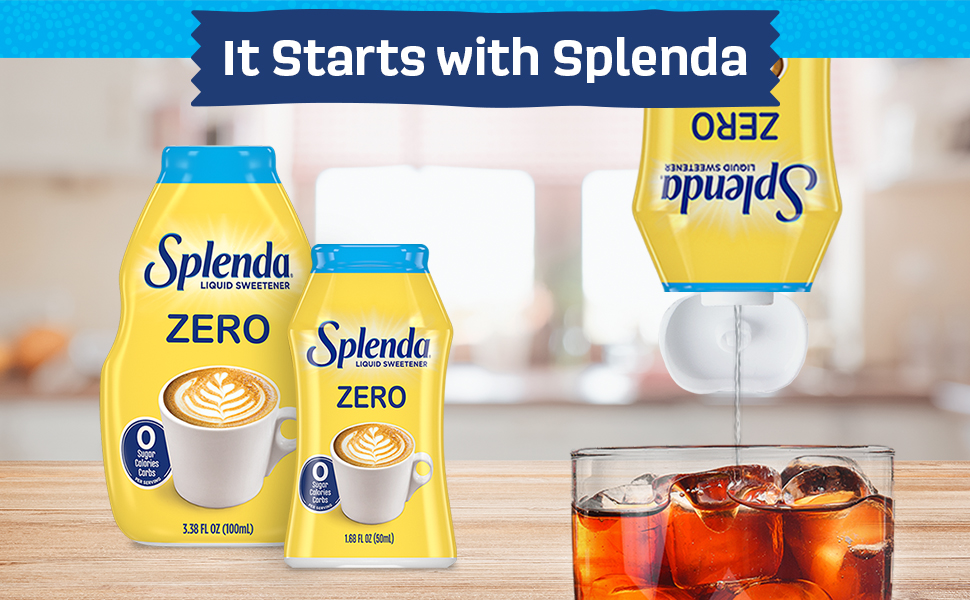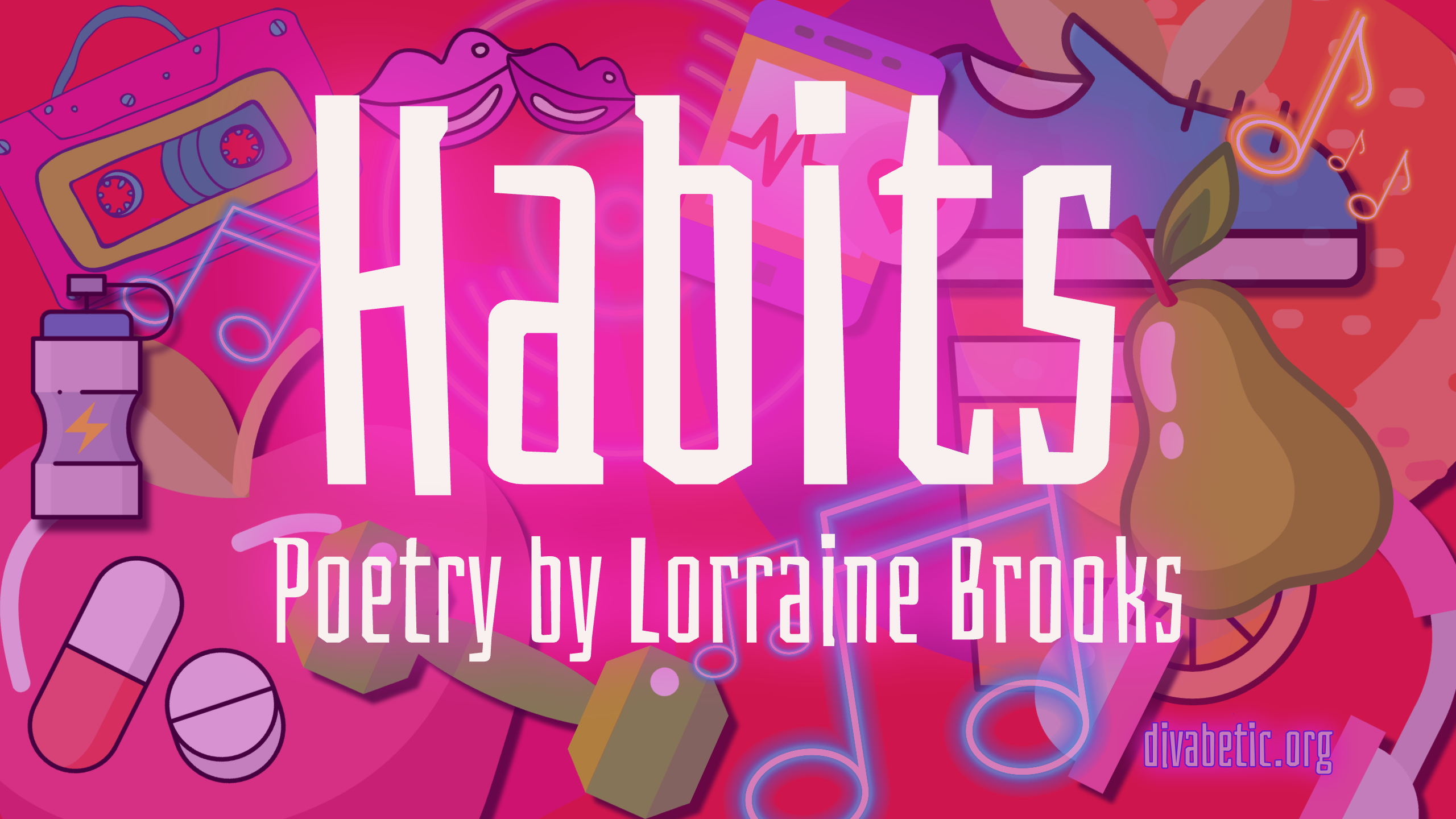This is 75!!!
America’s #1 Energy Conductor, Kathie Dolgin aka ‘High Voltage’, reached another milestone looking: Fit, Fabulous, and Fierce!

The two of us spent the day together walking around New York City. While strolling on the High Line and Little Island, she mentioned,” I barely weigh a hundred pounds, but I can still lift 185 pounds on the leg press.”

Her secrets to looking good at any age are limiting the amount of added sugar in her diet, moving her body, and using the power of daily positive affirmations to turn negative self-talk into pearls of encouragement.
As we toured the new Hudson Yards and walked by the Vessel, we discussed our many collaborations to glamorize good health for girls and women at risk, affected by and living with diabetes.

Regarding added sugar, High Voltage adheres to the American Heart Association (AHA)’s guidelines of limiting added sugars to no more than 6 percent of calories each day. For most American women, that’s no more than 100 calories per day or about 6 teaspoons of sugar. It’s 150 calories per day for men, or about 9 teaspoons. The AHA recommendations focus on all added sugars, without singling out any particular types such as high-fructose corn syrup.
Many people consume more sugar than they realize. Sometimes, we may surpass our daily limit with what we put in our morning coffee. Our bodies don’t need sugar to function properly. Added sugars contribute zero nutrients, but many added calories that can lead to extra pounds or even obesity. That can reduce heart health.

The artwork along the High Line echoed our thoughts about health and wellness. Artist Pamela Rosenkranz’s installation Old Tree, a bright red-and-pink sculpture, matching High Voltage’s outfit, animates myriad historical archetypes wherein the tree of life connects heaven and earth. The tree’s sanguine color resembles the branching systems of human organs, blood vessels, and tissue, inviting viewers to consider the indivisible connection between human and plant life.
Since we met, High Voltage has enormously impacted my life and health. Her nonstop energy and encouragement make you leap out of bed with a ‘can do’ attitude. Once, she even inspired me to attempt the trapeze .. and I fear heights!!!
For many years, I worked on her Energy Up! wellness program for at-risk girls in the New York School system. One of the programs I helped to create was ShockTober.
Take the pledge with Voltage and the rest of your Energy Up! peers around the world during October. Start with 5-days and add more as you can. No sugary drinks — YOU CAN DO IT!
Shocktober Pledge: I am happy I am healthy, And I choose to be For 5 whole days SUGAR FREE, I’ll kick to the curb All SSB’s, Chocolate Milk, Sports Drinks Sodas, Sweet Tea’s , Because they’re incredibly bad for me, I’ll drink more water, Not fruit juice, Move my body, Give my spirit a boost! Energy Up! WHOOOOO!!!
Last year, High Voltage participated in our Divabetic Mysteries podcast, Tomorrow Is Not On the Menu, as the health guru, Wendy Wattage.
Here’s a short synopsis of Divabetic’s 9th Annual Mystery podcast, Tomorrow’s Not On the Menu:
The happy healthcare host, Mr. Divabetic, lands his to-die-for job as a caterer for the nation’s hottest health guru, Wendy Wattage’s Wellness Retreat on the Jersey Shore. Everything seems low pressure and low calorie until the body of the nasty food critic, Marilyn Macaroni, is found stabbed to death with one of Max’s new chef knives. Now he’s the prime suspect in a big, fat murder investigation!
Can he and his team of friends, diabetes educators, and his nosey Italian mother, Mama Rose Marie, find the killer before the police arrive? Or will he be trading his fruit suit for coveralls with stripes?
Weight loss murder never tasted so good.
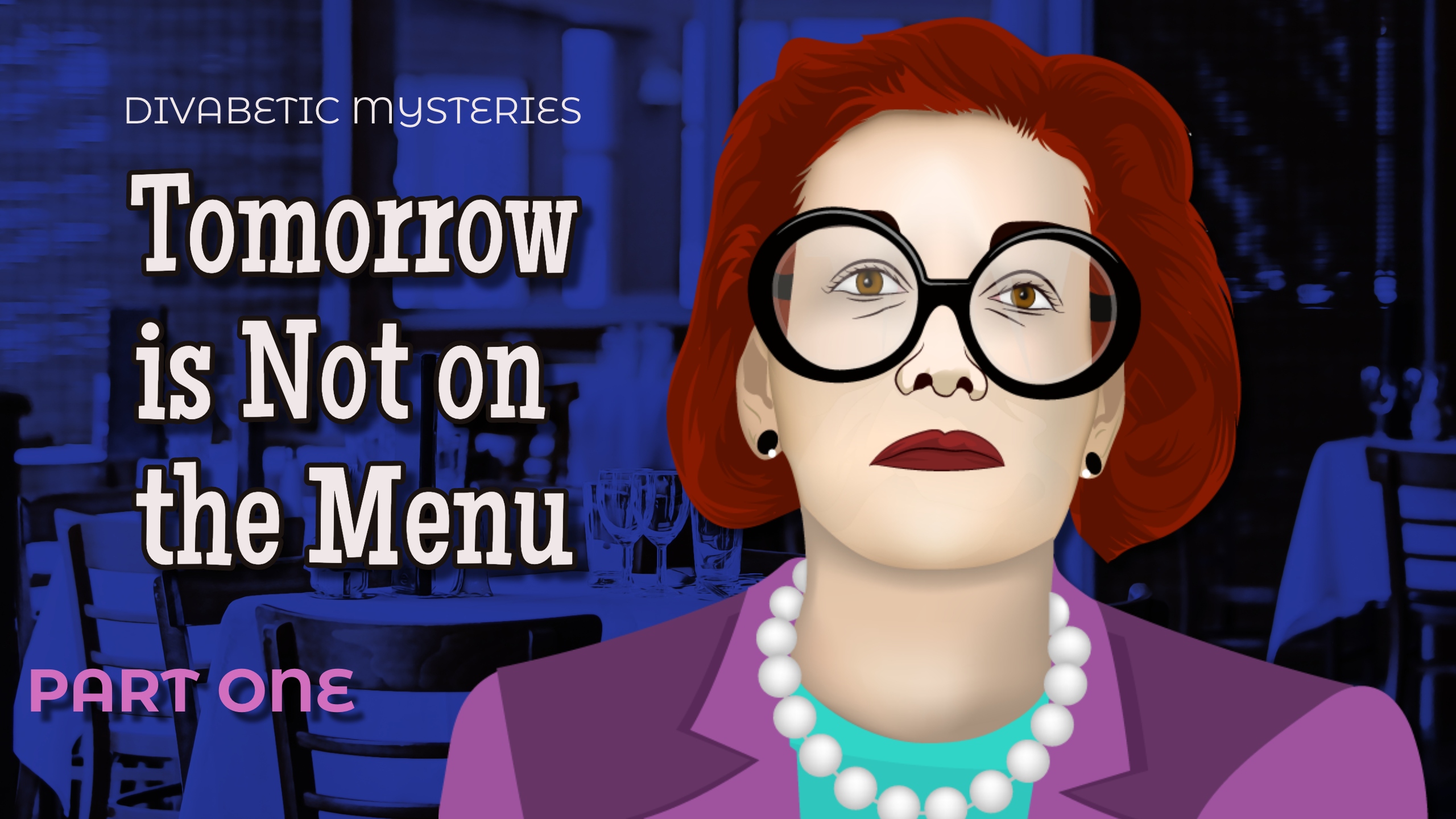
Starring Mr. Divabetic, Best-Selling Author Tonya Kappes, Mama Rose Marie, Patricia Addie-Gentle RN, CDCES, Maryann Horst Nicolay MEd, NTDR, Kathie Dolgin aka ‘High Voltage,’ Seveda Williams, Dave Jones, Catherine Schuller and Lorraine Brooks. Produced by Leisa Chester Weir. Special thanks to our colleague, the multi-talented Wendy Radford.
Music from The Pink Panther and The Return of The Pink Panther soundtracks by Henry Mancini courtesy of SONY Music.









